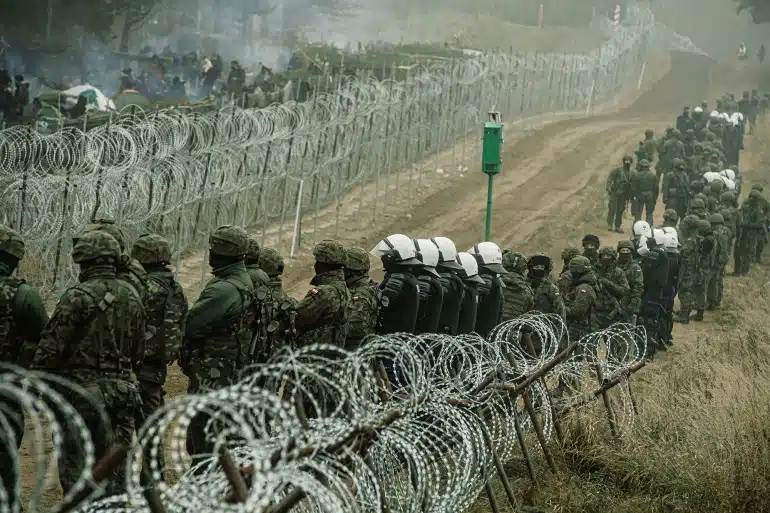As the nights grow longer and colder, the dangerous situation at the border between Belarus and Poland intensifies. Hundreds, or maybe thousands, of migrants huddle together on the border in hopes of crossing over to Poland to reach the EU. This is a result of a ploy by Belarus’s President Lukashenka to fly out migrants from the Middle East and Africa to Minsk with promises of guiding them towards EU-territory.
Lukashenka’s response to EU sanctions was unorthodox, but cunning, using one of the smartest tricks in the book of geopolitics: hit them where it hurts. The large number of migrants arriving in the EU in 2015 has shown that the EU is by no means a unified authority when it comes to dealing with migration. The Southern countries were left to deal with the many refugees arriving there, while the EU as a whole could not agree on a common strategy. This led to huge refugee camps, sometimes housing up to four times as many people as originally intended. These people had to live, and often still live, in poor living conditions, unsure of what the future would bring. Lukashenka has used this weakness to punish the EU for the sanctions they imposed after the 2020 Belarussian Presidential elections, which Lukashenka claims to have won by a landslide, but that triggered massive protests by people contesting the results.
However, the victim in this ploy is not the EU; it’s the people stuck at the Belarussian-Polish border, with no relief in sight, no access to food, water or electricity, as temperatures reach below zero. We know Lukashenka will not bat an eye about the welfare of these people, but the EU should be practicing what it preaches and actively be helping them. What makes matters worse for the EU is also the fact that the area in Poland around the border has been in a state of emergency for weeks now: Besides some humanitarian aid workers, no one is allowed in, including journalists. It’s quite ironic that the EU preaches about ideals of freedom, which includes freedom of press, but then doesn’t seem to mind when Poland dismisses this.
Wrong priorities
Because no journalists are allowed inside, it’s hard to obtain trustworthy information from the border, but humanitarian workers and local citizens have painted a bleak picture: According to them, at least ten people have died already, which could become hundreds if we fail to do anything. Ten dead people is ten too many, and the fact that the EU is actively lobbying with countries in the Middle East and Africa to suspend flights to Minsk, instead of helping people stuck in no man’s land, speaks volumes: Limiting the influx of refugees seems to be more important than saving lives. While this is definitely part of the solution, it doesn’t change the current situation at the border, and those people deserve a solution as well.
The EU is doing this, because of the fear that welcoming more refugees will tilt the electoral scale in favour of parties at the extreme right, and consequently undermine our political systems. However, by actively blocking refugees from crossing our borders, we’re essentially carrying out right extremist policies. Keeping out right extremists is not helped by executing their policies. The hundreds to thousands of people stuck at the Polish border will not magically disappear overnight. Lukashenka will not take them back, and the situation is becoming more dangerous for these people by the day. It should thus be the EU’s no. 1 priority to ensure these people receive a fair asylum procedure, which they are entitled to under International and European law. Only then will the EU be somewhat credible again in protecting its own founding values of ‘Human dignity, freedom, democracy, equality, the rule of law and respect for human rights.’




